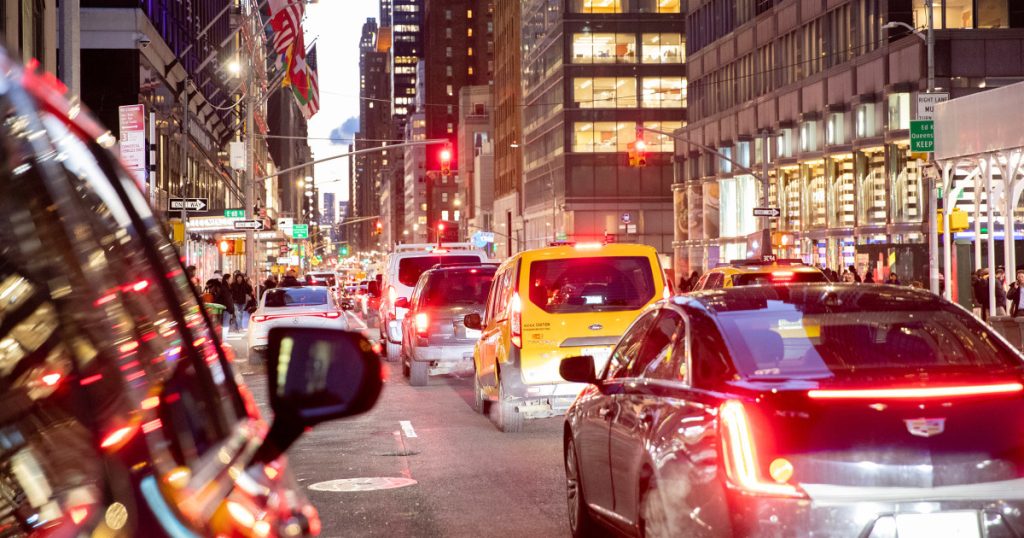The Metropolitan Transportation Authority (MTA) has decided to indefinitely postpone the implementation of New York City’s congestion pricing plan, which was set to start later this month. The toll program was expected to generate $15 billion in revenue for the agency, which could be used to improve the city’s transit system. This decision comes after Governor Kathy Hochul considered delaying the launch to allow time for court rulings and federal approval, as well as to gather more data on the city’s commuting patterns post-pandemic and economic outlooks.
Mayor Eric Adams supports exploring other options to generate the necessary funding without negatively impacting New Yorkers’ lives or hindering the city’s recovery. The consideration to delay congestion pricing is thought to be politically motivated as Democratic leaders have raised concerns about its impact on upcoming U.S. House races. The toll would affect drivers entering the Central Business District (CBD) below 60th Street in Manhattan, with different rates based on vehicle type. While plans for the toll had aimed to reduce the number of vehicles entering the area by 17%, there are limited exemptions such as emergency vehicles, snowplows, and low-income drivers earning less than $50,000 a year.
The congestion pricing plan would charge different rates for passenger vehicles, trucks, motorcycles, and other vehicles entering the CBD. The toll would only apply to vehicles entering the zone and not for those leaving or staying within it. There would be a single toll charge for each vehicle per day, regardless of re-entry. The plan was projected to reduce the number of cars in the affected area by 17% while generating $15 billion in revenue for transit system improvements. Although various groups had lobbied for exemptions, only a few, such as specialized government vehicles, emergency vehicles, and low-income drivers earning under $50,000 a year, would receive discounts on the toll.
The decision to postpone congestion pricing comes after Governor Hochul considered delaying the launch to allow for court rulings, federal approval, and further analysis of commuting patterns and economic outlook post-pandemic. Mayor Adams and other officials support exploring alternative funding options that would not overly burden everyday New Yorkers or hinder the city’s economic recovery. Despite calls for exemptions for public-sector employees, residents of the CBD, utility companies, and electric vehicle owners, the congestion pricing plan did not grant these groups any exceptions. The toll rates were set to be higher during peak hours and lower during off-peak hours, with drivers using certain tunnels receiving credits to offset the toll costs. The delay in implementing congestion pricing will allow for more thorough assessment of its impact, both economically and politically, on New York City residents and businesses.


